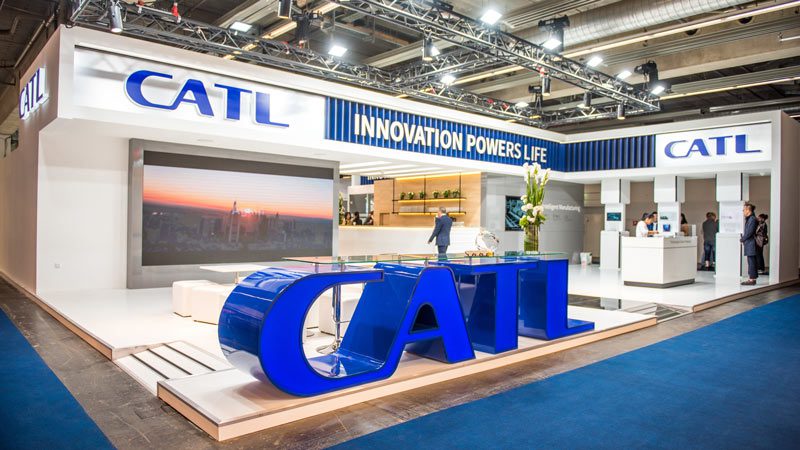Chinese battery maker CATL has reportedly promised to bring solid-state battery cells with battery density of more than 350Wh/kg, once key technology and production issues have been solved.
Twitter user “Moneyball”, who describes themselves as a “China web media researcher”, recently tweeted that “China media”, citing Chinese battery maker Contemporary Amperex Technology Co. Limited (CATL), had promised solid-state batteries as part of their long-term plans.
More importantly, however, was that CATL reportedly is promising solid-state batteries with battery density of 200Wh/kg, even 230Wh/kg in the near-term, and as much as 350Wh/kg and 400Wh/kg in the long term.
CATL has made no official announcement of these promises on either their Chinese-language or English-language websites, so we should take this news with a grain of salt. That being said, Moneyball has been proven right in the past, so maybe two grains of salt?
According to Moneyball, lithium-iron phosphate (LFP) is the preferred solid-state battery technology which will help to deliver battery density of 200Wh/kg and even up to 230Wh/kg. CATL is further planning to use the NMC 811 cathode technology (a cathode composition with 80% nickel, 10% manganese, and 10% cobalt) to deliver solid-state batteries with battery density of 300Wh/kg.
#LFP to be preferred for compact, we expect to get 200 Wh/kg, even 230 Wh/kg, high voltage for mid-end, nickel rich ternary for high-end #EV, where we plan #NMC811 to nickel rich+silicon move & get 300 Wh/kg, long term 350 Wh/kg, #China media citing #CATL.https://t.co/2FPiLh4xu6
— Moneyball (@DKurac) January 28, 2021
In the long term, the company is looking even further, and expects to begin making batteries with battery density of 350Wh/kg, and even up to 400Wh/kg. However, CATL explained that these long-term goals will require solving of key technology and production issues.
We have been developing SSB for 10 years & we think lithium metal as anode is the best solution for SSB, #CATL on solid state #battery dev.
We are faced with key tech/production issues, but once solved, we can get 350 Wh/kg, even 400 Wh/kg, CATL added.https://t.co/pGlgO2MMxW— Moneyball (@DKurac) January 29, 2021
Worth noting is that Chinese EV maker Nio announced at the beginning of the year that its new 150kWh battery packs boasted an ultra-high density of 360Wh/kg. Meanwhile, Tesla founder Elon Musk hinted in the middle of last year that 400Wh/kg batteries could be produced in volume in “3 to 4 years.”
CATL’s reported promises also included plans to begin installing cell-to-chassis (CTC) technology in EVs around 2025, which the company hopes will make EVs cost-competitive with traditional ICE vehicles and enable driving ranges in excess of 800-kilometres.
In the near-term, CATL will introduce its second-generation cell-to-pack technology in 2022-2023, and smart cell-to-chassis technology in 2028.
#CATL to start installing CTC in #EVs ca 2025, the tech to make EV cost competitive vs ICEV & enable >800km range, #China media citing #battery maker.
We will introduce 2nd gen CTP in 2022-2023, smart CTC in 2028, SSB part of long-term plans, CATL added. https://t.co/Zo66obTsEX— Moneyball (@DKurac) January 28, 2021
Joshua S. Hill is a Melbourne-based journalist who has been writing about climate change, clean technology, and electric vehicles for over 15 years. He has been reporting on electric vehicles and clean technologies for Renew Economy and The Driven since 2012. His preferred mode of transport is his feet.

